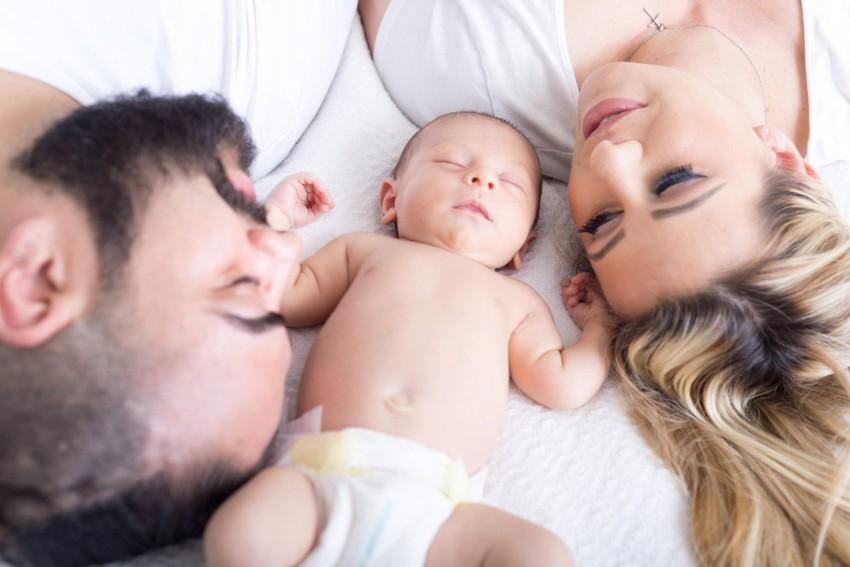The perinatal course referent (RéPAP) to monitor pregnant women: an experiment launched today in the Drôme department for personalized support.
The establishment of a perinatal course referent – RéPAP – as part of the course for pregnant women and the "first 1,000 days of the child" is an experiment at the initiative of the Ministry of Solidarity and health. This involves offering pregnant women, in addition to the usual prenatal and postnatal follow-up, personalized and graduated support by a perinatal course referent. The Drôme is one of the four experimental territories of this project which starts on January 20, 2022 in the department over a period of 18 months.
The objective of this project is to improve the health of women and children by offering, in addition to the usual medical follow-up from which all pregnant women benefit, personalized support for pregnancy and the first three months of the child, through individual interviews with a referent.
This referent is a health or social professional, with experience in perinatal care, whose role is to surround the patient and the couple, to anticipate their own needs, to discuss their specific difficulties and help them find answers and solutions. He will ensure the coordination of the various stakeholders around the mother, the couple and the child, will organize the continuity of the health and postnatal course and will thus contribute to limiting the ruptures of follow-up and care of the mother and the child. .
Expected benefits for patients and for the parental couple
This device should help patients understand their pregnancy monitoring, direct them to other professionals if necessary, help to develop their birth plan, to prepare for the arrival of the baby, the choice of the mode of feeding, the choice of the mode of care, and to create links in the postnatal period.
The RéPAP aims to be a privileged interlocutor who listens to them and supports them throughout the perinatal course, available and easily reachable (telephone and email address). It is the essential link so that the couple can express their experience around the birth and benefit from help if necessary.
Who can benefit from it and when?

Any patient pregnant before the 7th month, living in the Drôme and having rights open to health insurance, can benefit from the support of a RéPAP. This follow-up is fully supported financially. It is based on four basic interviews (a first face-to-face interview to enter the system, a second interview during the 8th month, to prepare for delivery, a third interview 15 days after returning to home and a final interview before the child is 4 months old), coupled with the telephone availability of the referent. In the event of specific difficulties, the RéPAP can set up a reinforced process by means of additional interviews, more extensive telephone follow-up and increased coordination of interventions.
Information for patients and future parents
Patients are informed by the Primary Health Insurance Fund by means of a flyer that the CPAM sends them in return for their declaration of pregnancy. They are also informed by the health professional, doctor or midwife, who provides medical monitoring of the pregnancy, and who may himself be their referent.
Mobilization of professionals
The project is carried out at the departmental level by the three hospital centers with maternity headquarters: the Drôme Nord Hospitals in Romans, the Portes de Provence Hospital Group in Montélimar and the hospital in Valence, as well as the local perinatal centers in Crest, Die and Saint Vallier and the Maternal and Child Protection services (PMI) of the Department of Drôme.
The health professionals of the department have been informed of this project by their council of the order, by the various representative bodies and by the various networks of professionals. A specific flyer was made available to them and posters were sent to medical practices.
To date, 52 healthcare professionals have committed to become RéPAP. They come from the different sectors involved: they are liberal, hospital, PMI employees, etc. They followed a first training session, other training modules will follow throughout the project. At any time, a health or social sector professional experienced in perinatal care can join the project and become RéPAP.
This project benefits from innovative financing by health insurance, as part of an experiment under article 51 of the Social Security Financing Law (LFSS) 2018. Steering is provided by the Valence Hospital Center with the support of the Auvergne-Rhône-Alpes Regional Health Agency.
The perinatal course referent, support for the first 1,000 days
The period of the first 1,000 days which begins with pregnancy, then childbirth and the first months of the child's life was identified as particularly fragile; the ante and post-natal follow-up must be decompartmentalised in order to offer a coherent course adapted to the needs of the mother, the parental couple and the child.
During this decisive period for the future of the child and for the construction of parenthood, the experimentation defined by the decree of July 27, 2021 consists in offering all pregnant women, and in particular the most vulnerable , reinforced, personalized and graduated support by a perinatal course referent. This support by the RéPAP is implemented from the start of pregnancy until the child is three months old, in complementarity and in coordination with existing systems and professionals (city/hospital/PMI)[1].
[1] Order of July 27, 2021 relating to the “RéPAP: Perinatal course referent” experiment
Contacts for any information on the RéPaP project:
Elisa ETIENNE, midwife and Stéphanie FRAYCHET, administrative manager
Departmental pilots of the project
repap@ch-valence.fr
Effects of palm oil on health: what are the dangers?
GO
Vaccination obligation in Lourdes: the employee of a dialysis center dismissed
GO
Charlotte, student midwife: "We are very quickly in autonomy"
GO
Sophie Fontanel poses naked and receives thousands of "Thank you"
GO